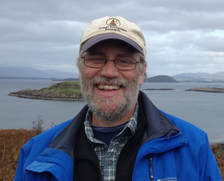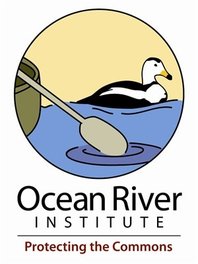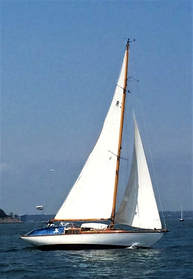Dr. Rob Moir, At a Glance

Dr. Rob Moir is an educator, scientist and activist with a proven history of institutional management and marine policy success. He has been a leader of citizen science and efforts to clean up Salem Sound and Boston Harbor, and a president of advocacy organizations, including Salem Sound Harbor Monitors, Salem Sound 2000 and Save the Harbor/Save the Bay, through his appointment by the secretary of interior to the Boston Harbor Islands Partnership. He was a curator of natural history at the Peabody Essex Museum, a curator of education at the New England Aquarium and an executive director of the Discovery Museums in Acton, Mass. Dr. Moir was the Sea Education Association’s first assistant scientist to work consecutive voyages of the R.V. Westward in 1979 and 1980 (W45, W49, W50, W52, and W53).
Dr. Moir received a PhD in environmental studies from Antioch University New England in 2002. He studied at the Marine Biological Laboratory in 1979 and at the Wrigley Marine Science Center in 2003. He holds a Masters of Science and Teaching (MST) with K-12 biology Teaching Certification from Antioch University New England, which he obtained in 1979, and a Bachelor of Arts from Hampshire College, which he obtained in 1977 (73F). |
Dr. Moir supports a number of worthy causes that are geared toward the management and fortification of the environment. He is active with the Stellwagen Bank National Marine Sanctuary Advisory Council. He volunteers as Treasurer of the Massachusetts League of Environmental Voters. From 2003 to 2010, he served as founding chairman of Ocean Champions, and he is also a former member of the Board of Trustees at the Cambridge School of Weston, former director of the National Marine Educators Association, and former president of Essex County Ornithological Club, and he is also a former member of the Board of Trustees at the Cambridge School of Weston. He is a member of the Massachusetts Marine Educators, the (British) Virgin Islands Environmental Council and the Campaign for Environmental Literacy. He credits a career highlight as being his initiating of bioregional and ecosystem-based collaborative management by naming a portion of the Massachusetts Bay "Salem Sound," and bringing together the five municipalities, an engaged constituency of citizen scientists and eco-savvy residents to improve environmental qualities of the region. In his spare time, Dr. Moir enjoys studying field biology and natural history, admiring wildlife and whale watching, and engaging in an array of outdoor activities, which includes canoeing, kayaking, sailing, skiing, hiking, snorkeling and scuba diving.


